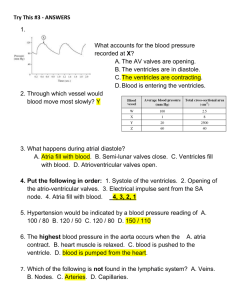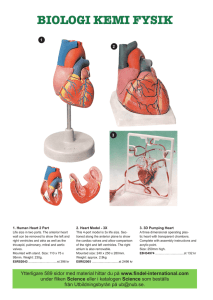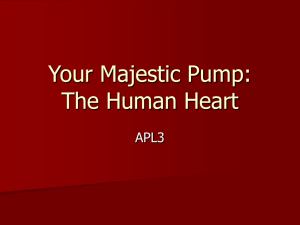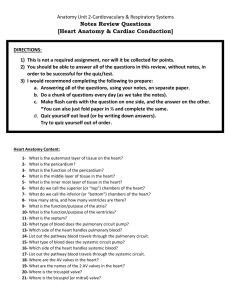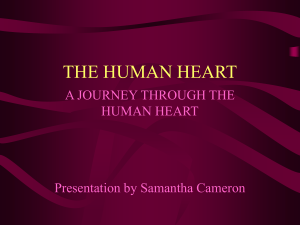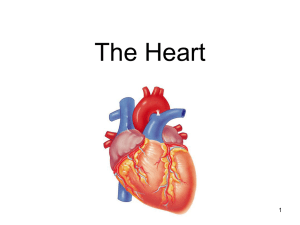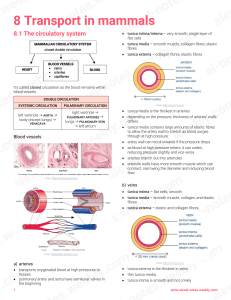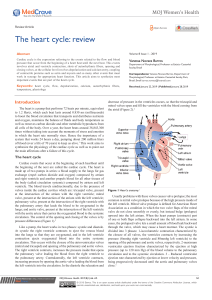Article - Heart Beat
advertisement
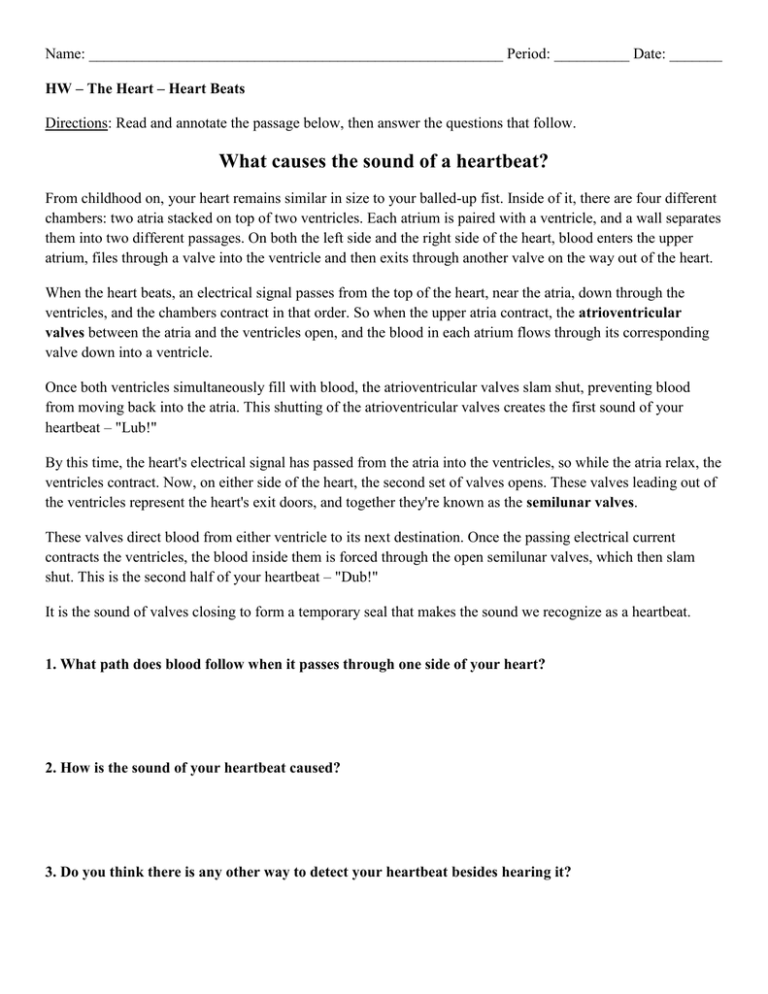
Name: _______________________________________________________ Period: __________ Date: _______ HW – The Heart – Heart Beats Directions: Read and annotate the passage below, then answer the questions that follow. What causes the sound of a heartbeat? From childhood on, your heart remains similar in size to your balled-up fist. Inside of it, there are four different chambers: two atria stacked on top of two ventricles. Each atrium is paired with a ventricle, and a wall separates them into two different passages. On both the left side and the right side of the heart, blood enters the upper atrium, files through a valve into the ventricle and then exits through another valve on the way out of the heart. When the heart beats, an electrical signal passes from the top of the heart, near the atria, down through the ventricles, and the chambers contract in that order. So when the upper atria contract, the atrioventricular valves between the atria and the ventricles open, and the blood in each atrium flows through its corresponding valve down into a ventricle. Once both ventricles simultaneously fill with blood, the atrioventricular valves slam shut, preventing blood from moving back into the atria. This shutting of the atrioventricular valves creates the first sound of your heartbeat – "Lub!" By this time, the heart's electrical signal has passed from the atria into the ventricles, so while the atria relax, the ventricles contract. Now, on either side of the heart, the second set of valves opens. These valves leading out of the ventricles represent the heart's exit doors, and together they're known as the semilunar valves. These valves direct blood from either ventricle to its next destination. Once the passing electrical current contracts the ventricles, the blood inside them is forced through the open semilunar valves, which then slam shut. This is the second half of your heartbeat – "Dub!" It is the sound of valves closing to form a temporary seal that makes the sound we recognize as a heartbeat. 1. What path does blood follow when it passes through one side of your heart? 2. How is the sound of your heartbeat caused? 3. Do you think there is any other way to detect your heartbeat besides hearing it?
